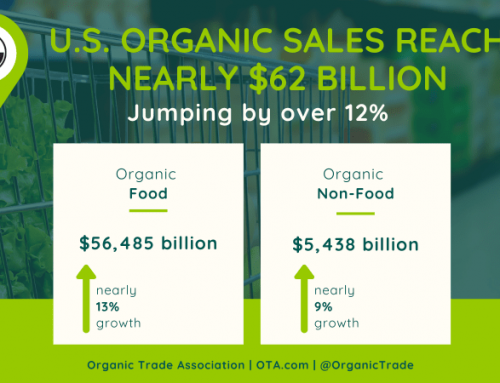
The report, delivered in the midst of the 2012 Farm Bill debate, noted that the U.S. organic industry grew by 9.5 percent overall in 2011—more than double the growth rate for conventional foods—to reach $31.5 billion in sales, making it a noteworthy contributor to the U.S. farm economy. According to the Organic Trade Association (OTA), the organic food industry generated more than 500,000 jobs in the U.S. in 2010 and reached 4.2% of overall retail food sales in 2011.
“The organic sector is fueling jobs and rural livelihoods at an astounding rate,” said Matt McLean, OTA board president and founder and CEO of Uncle Matt’s Organics in Clermont, FL. “Organic is also creating an important economic opportunity for rural Americans through new business opportunities generated from the recent organic equivalency trade arrangements with Canada and the European Union.”
According to crop values issued by the USDA’s National Agriculture Statistics Service, organic takes sixth place for the value of production, immediately after wheat and cotton and directly before almonds, peanuts and rice, says the OTA.










Leave A Comment